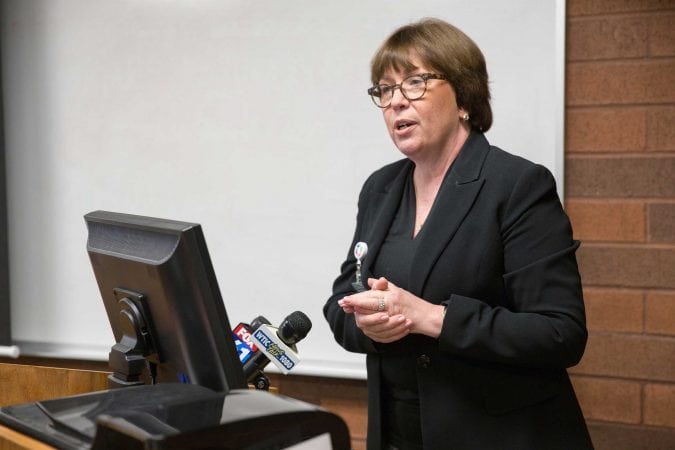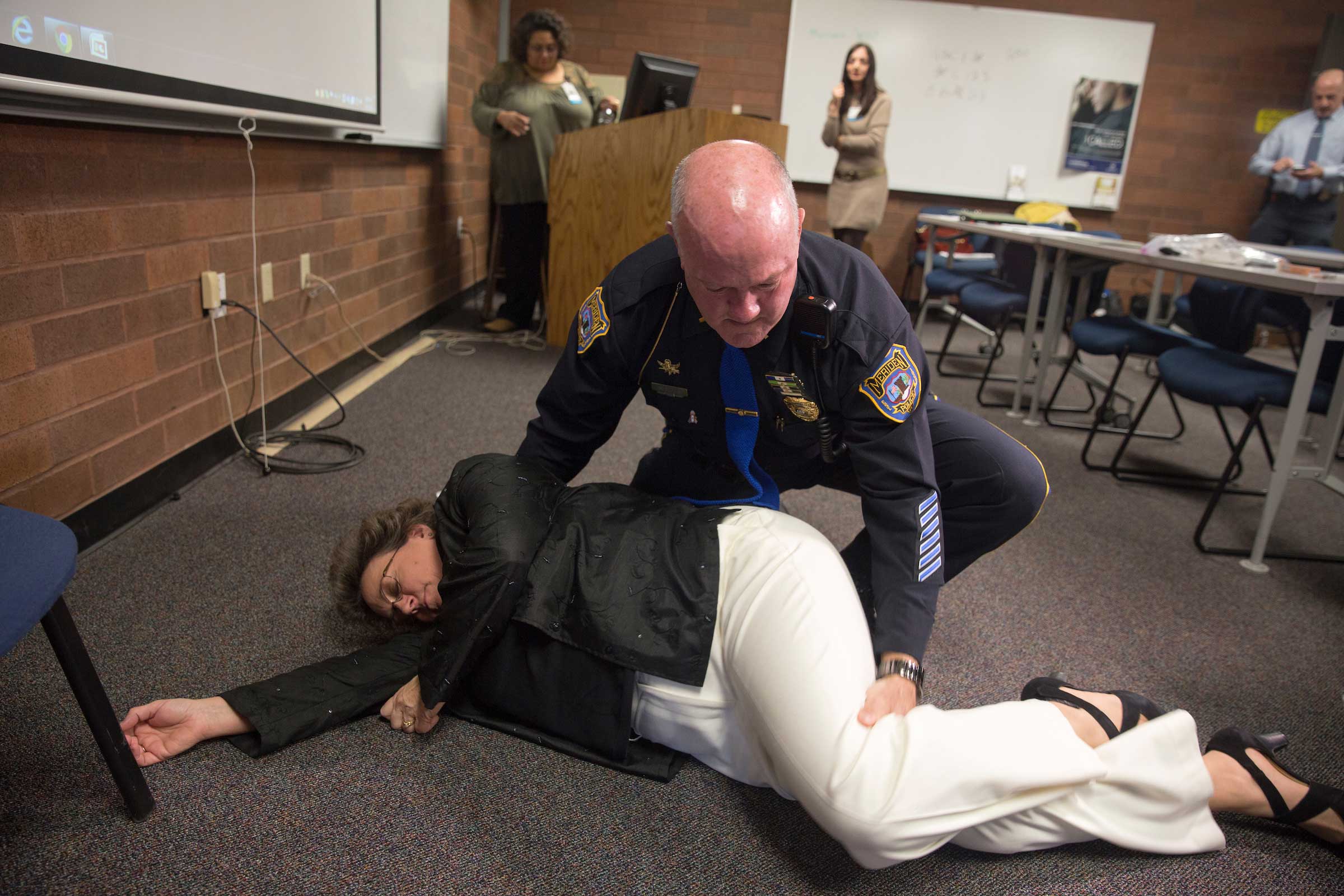Barely a month after receiving training from Rushford on how to properly administer naloxone, or Narcan, the medication that can help reverse the symptoms of an overdose, Meriden police officers saved thee life of a man experiencing an overdose who was found laying unresponsive in the street.
“This one incident alone makes it well worth the training we received,” Meriden police Sgt. Darrin McKay said at a press conference Jan. 20 to highlight the partnership between Rushford, the police department and the Meriden Healthy Youth Coalition, which provided grant funding to cover the costs for the training as well as a supply of more than 70 Narcan kits for officers. Though not officially designated as emergency first-responders, Meriden police chose Narcan training because officers are often the first to arrive at the scene of someone experiencing an overdose, and therefore can make a life-or-death difference in helping an overdose victim.
Police officials said two officers were on patrol in the pre-dawn hours on Jan. 3 when they encountered a man on the ground who was apparently unconscious. The officers, noticing drug-related items near the man, determined he was experiencing an overdose. One of the officers, who participated in the Narcan training sessions provided by Rushford in November, administered a dose of Narcan nasal spray from a kit provided to the the department, but the man did not respond. But after administered a second dose, the man revived quickly and was taken to the hospital, where he received treatment and was able to recover, police said.

“We are so pleased that the close relationship we have developed with the Meriden Police Department has led to such a positive outcome,” said Patricia Rehmer, president of the Behavioral Health Network, who added that partnerships with community stakeholders is crucial to the effort to address the ongoing epidemic in opioid abuse. She pointed out that in Connecticut last year, more than 800 people died of drug-related overdoses, a state record and more than double the number of people who died in in automobile accidents.
Dr. J. Craig Allen, Rushford’s medical director, explained how Narcan works to reverse the effects of an opioid or heroin overdose. He said Narcan kits are becoming increasingly available, but can still be relatively expensive at more than $100 per kit, on average.
“We need to make these kits more accessible so that people can keep them in their homes and other places where they can help make a difference at a moment’s notice,” he said.
Sgt. McKay thanked Rushford representatives, including Monique Algood, an advanced practice registered nurse who provided the training sessions, and Sheryl Sprague, Rushford prevention manager, for showing officers how easy and effective it is to administer the medication.
For more information on addiction treatment, visit Rushford.

